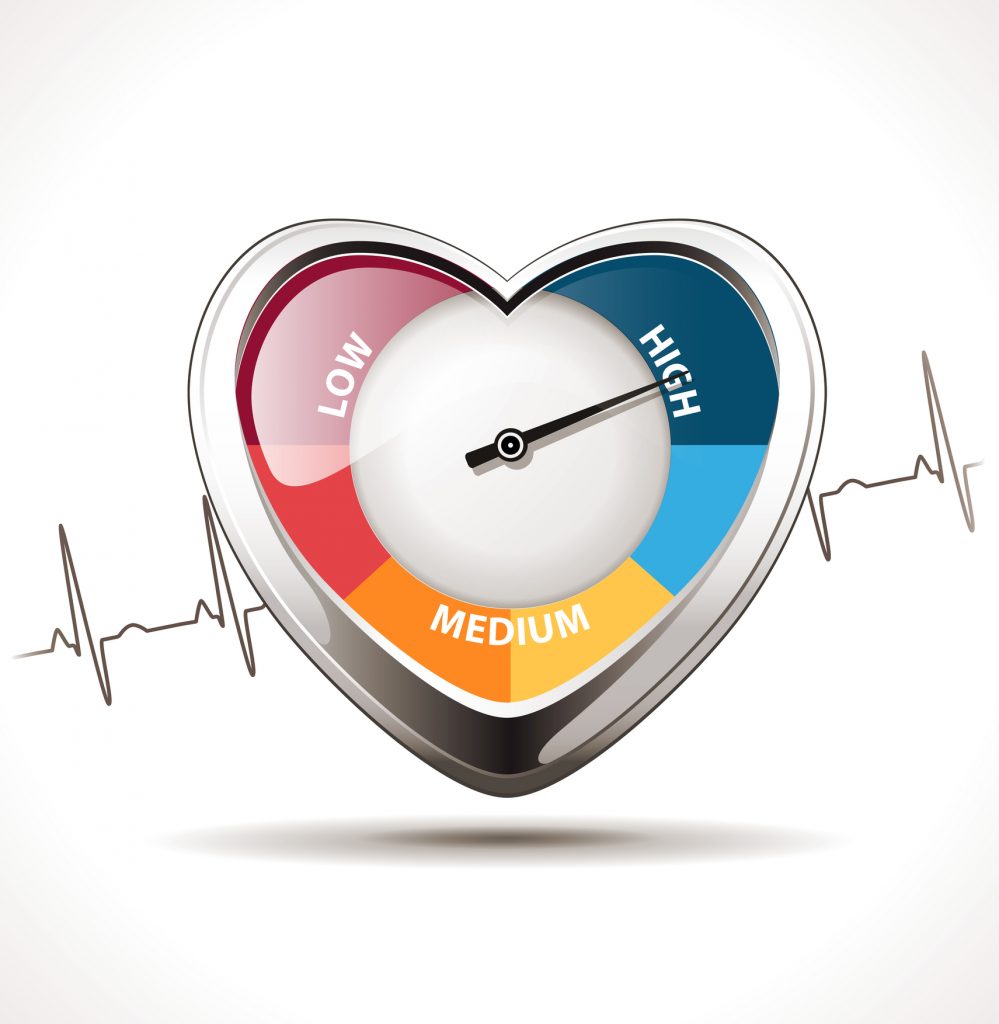Americans are in a battle, but the enemy appears to be winning. Hypertension is on the rise affecting an estimated 103 million U.S. adults according to new statistics from the American Heart Association. That’s nearly half of all adults in the United States.
It’s called the silent killer. But when this predator finally breaks its silence the affects can be life threatening. In most cases, the damage done by high blood pressure (HBP, or hypertension) takes place over time. Left undetected (or uncontrolled), high blood pressure can lead to heart attacks, strokes, heart failure and kidney disease. The good news is with the right degree of intention and commitment, most people can successfully manage their BP levels. Whether your numbers are in a healthy range, slightly elevated, or high, here are some strategies to help you prevent or better manage hypertension
- Become a Sodium Sleuth: Controlling your sodium intake requires vigilance. Get in the habit of reading labels and stay away from anything with more than 140 mg of sodium. A low sodium label does not necessarily mean that it meets the low sodium standard. Opt for fresh foods rather than packaged and eat more home cooked meals Try experimenting with sodium free seasonings to flavor your food as well as herbs and spices. This will go a long way to lower your sodium intake.
- Exercise: You don’t need to become a fitness fanatic in order to lower your numbers. According to the American Heart Association, regular physical activity — about 30 minutes most days of the week — can lower your blood pressure by about 5 to 8 mm Hg if you have high blood pressure. It’s important to be consistent because if you stop exercising, your blood pressure can rise again. If you have elevated blood pressure, exercise can help you avoid developing hypertension. If you already have hypertension, regular physical activity can bring your blood pressure down to safer levels. If you are new to exercise you may want to consider working with an in home personal trainer who can designed effective program that take into account with your unique needs, preferences and limitations.
- Self-Monitor: According the American Health Association, blood pressure numbers of less than 120/80 mm Hg are considered within the normal range. Hypertension Stage 1 is when blood pressure consistently ranges from 130-139 systolic or 80-89 mm Hg diastolic. Your yearly blood pressure check at your doctor’s office is necessary but not sufficient. In order to properly monitor your numbers you must invest in a good blood pressure monitor. Bring your monitor to your next visit so that he or she can show you the proper way to take your blood pressure. Doctors often recommend that you take your blood pressure at the same time each day.
- Stress Management: It’s vitally important that you take time to relax and do things that you enjoy. Take inventory of people, places or situations that cause excessive stress. Do your best to limit your exposure. If that is not possible develop some effective coping strategies.
- Mind Your Meds: Depending on how high your numbers are, your doctor will support you in managing your levels with behavioral/lifestyle changes. However, if that is not effective, you will likely be advised to start taking medication. It’s vitally important that you comply with your doctor’s recommendation and do your best to take your medications at the same time each day.
- Cap the Caffeine: Many people start the day with a morning cup of Joe. But if your blood pressure is elevated, you may want to considering cutting back or opting for decaf. Although the long-term effects of caffeine on blood pressure aren’t clear, many people seem to have a sensitivity to it. To see if caffeine raises your blood pressure, check your pressure within 30 minutes of drinking a caffeinated beverage. If your blood pressure increases by 5 to 10 mm Hg, you may be sensitive to the blood pressure raising effects of caffeine. Talk to your doctor about the effects of caffeine on your blood pressure.
If you want to take control of your health by keeping your blood pressure in check we can help. Our fitness programs are specifically designed to help you reduce your risk for hypertension. Give us a call today at 888-323-8677.

